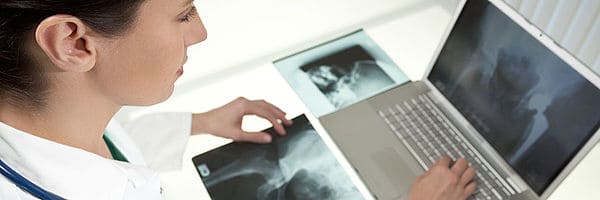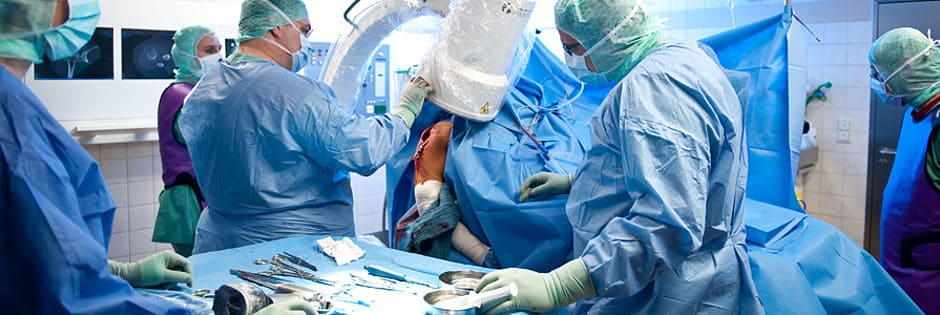Bone fractures are among the top ten reasons for people to spend time in a hospital across the Baltic Sea region. Bone fractures and health disorders linked to them will occur more frequently because of our ageing society. Implants can break. Fractures can get infected. And some fractures even never heal. The Baltic Fracture Competence Centre enables companies to develop new and better products. And it helps hospitals to identify best clinical practise so that patients stay in hospital shorter, get longer lasting implants and suffer from fewer complications. Partners from the medical industry, hospitals, research and treatment set up a transnational bone fracture registry as a basis for identifying clinical needs.
Arndt-Peter Schulz is a trauma surgeon at the University Medical Center Schleswig-Holstein in Germany. After doing surgery, he often wonders how long it takes for his patients to recover fully from their bone fracture. “We know very little about the healing process,” Schulz regrets. In Germany, a patient’s general practitioner is the only doctor who knows about his or her convalescence. Prof Schulz would like to know more about the recovery of his and other surgeons’ patients in order to optimise his own work.
An international register for bone fractures
Schulz, together with his project partner Nils Reimers of the medical company Stryker in Kiel had an idea. They wanted to set up a data registry of fracture surgeries and treatments. Stryker is specialised in developing and producing medical orthopaedic implants and instruments. Together with their partners from all around the Baltic Sea, they are now pursuing this idea under the lead of the Life Science Nord Management GmbH. The registry in Sweden is already in place since 2011. Four new registries are now being set up in Estonia, Germany, Lithuania and Poland. And all of them are linked together into one transnational registry which is coordinated by the University Medicine in Greifswald (Germany). University hospitals in Kaunas (Lithuania), Tartu (Estonia), Krakow (Poland), Kiel (Germany), and Gothenburg (Sweden) together with medical companies and research institutions are working together on this joint solution from 2016 to 2019.
More innovation and better fracture treatment
The register is meant for companies and physicians. On the one hand, companies can use the data to develop new products and technologies in a more targeted manner. On the other hand, physicians can optimise surgeries and treatment to make the patient heal faster and with a better outcome. “Such a registry reveals the history of an accident,” says Schulz. He refers to the type of treatment, the rehabilitation measures and the recovery. “We already collect a lot of data,” says Schulz, “yet, we need to process them according to internationally agreed standards and rules before we can enter them in the registry”. The transnational approach and the exchange with colleagues from other countries opens up the possibility to compare fracture treatment pathways in different countries and identify best clinical practise to be applied also in other places.
Connect health data between countries – because here we can
Another challenge is to transfer such health data across borders. In every country, the legal requirements and even the citizens’ attitudes towards data storage and transfer are different. It takes a lot of work by lawyers and others to create the frame for transfer of such sensitive information. “You cannot pursue such integration in many places in the world”, says Peter Frank of the network ScanBalt which generates ideas between companies, regions and clusters in the health sector. Yet, the countries around the Baltic Sea have some advantages over other regions that can be utilized for the benefit of the patients, for reducing costs in the health care systems and for the benefit of companies. These countries collect and process health data at a very high level. There are also some systems similarities across the region, e.g. how the health systems are built up or how citizens are registered. “So why do this in the Baltic Sea region? Because we can!” highlights Frank. After a bit more than one year, Peter Frank assesses the project positively: “BFCC can be the beginning of a much longer story of international integration of e-health services in the Baltic Sea region”.




